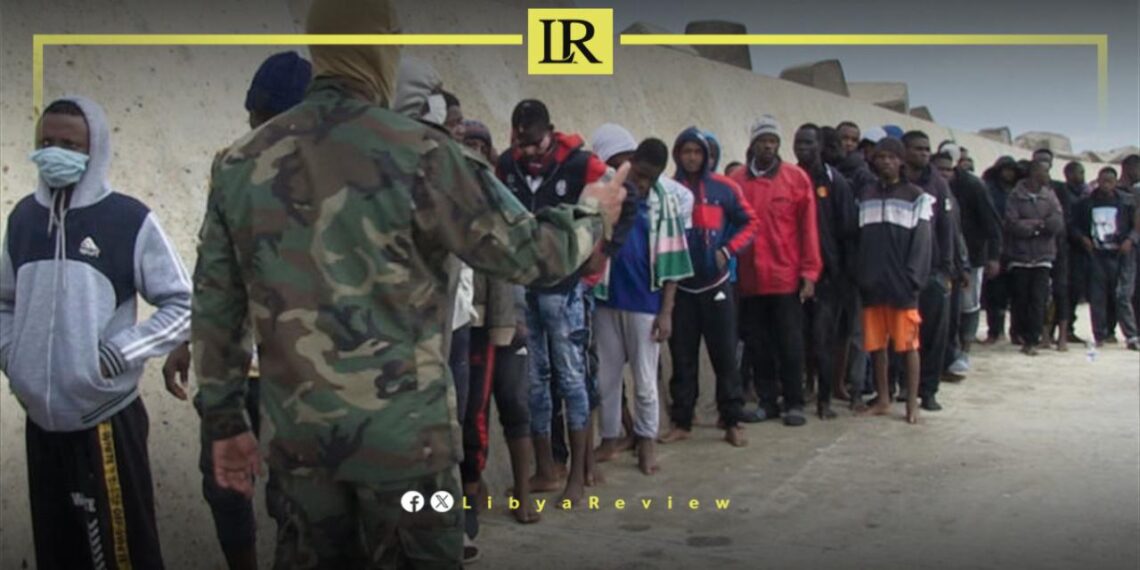On Thursday, a joint security force under the Ministry of Interior, appointed by the House of Representatives, successfully liberated over 100 migrants from human trafficking networks in a dramatic raid on a farm in the Al-Khuwair area, south of Tobruk.
The operation was conducted by the Criminal Investigation Department of the Tobruk Security Directorate, following authorization from the Public Prosecution. The raid was based on precise information received by the security authorities and was coordinated between the Investigation and Arrest Office of the Criminal Investigation Department and the Ministry of Interior’s media office, according to a post on their official Facebook page.
The situation escalated when traffickers opened fire on the security forces, prompting a retaliatory response. The ensuing gunfight lasted several hours before the forces managed to storm the farm and rescue the detained migrants. Some traffickers and migrants managed to flee, and authorities are continuing their efforts to pursue the escapees and secure the area.
Libya has long been a major transit point for migrants attempting to reach Europe, primarily due to its strategic location along the Mediterranean coast. The country’s political instability and porous borders have made it a hotbed for human trafficking networks. Migrants from various African and Asian countries often find themselves at the mercy of these traffickers, enduring severe hardships and exploitation.
The Libyan government, along with international organizations, has been striving to combat human trafficking and improve conditions for migrants within its borders. Operations like the recent raid in Tobruk are part of broader efforts to dismantle trafficking networks and protect vulnerable individuals from exploitation.
The international community, including organizations such as the International Organization for Migration (IOM) and the United Nations High Commissioner for Refugees (UNHCR), has been actively involved in providing support and assistance to migrants in Libya. These organizations offer humanitarian aid, legal assistance, and support for voluntary return programs to help migrants escape dangerous situations and return safely to their home countries.
However, the ongoing conflict and political divisions within Libya pose significant challenges to these efforts. The country remains fragmented, with multiple factions vying for control, complicating the implementation of consistent and effective anti-trafficking measures.


